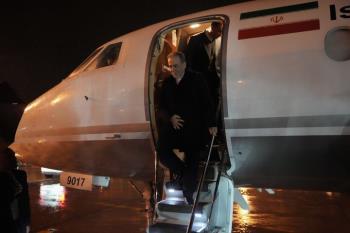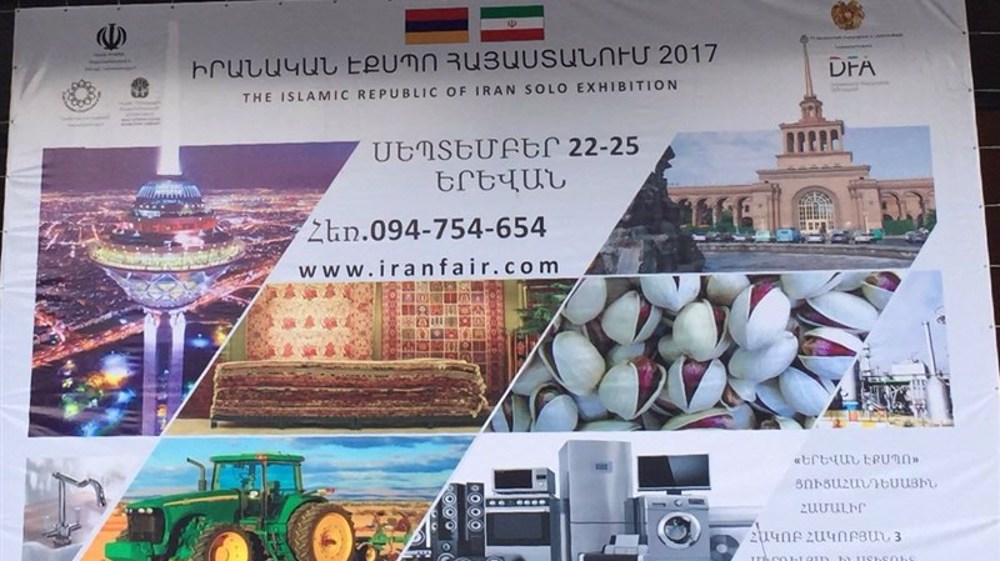Alwaght- Iranian Minister of Industry, Mines and Trade heading a large delegation will travel to Armenia this week in a bid to push forward the policy of fast-tracking trade and economic relations with neighbors.
The visit comes in the wake of a memorandum of cooperation signed between Iran Small Industries and Industrial Parks Organization (ISIPO) and Armenia's Investment Support Center last year, following which the first exhibition of Iran's production and industrial capabilities was held in Yerevan with a strong participation of Iranian companies.
Trade between the two neighbors, currently around $300 million, has steadily grown since Iran and the Eurasian Economic Union (EAEU) reached a free trade agreement in October 2018 based on which about 862 commodity items were subjected to preferential tariffs.
The EAEU is a trade bloc that includes Russia, Armenia, Belarus, Kazakhstan and Kyrgyzstan, seen by many observers as a precursor to a future Eurasian Union to unite the regional states as a bulwark against the West's use of economic sanctions as a political pressure tool.
To put in perspective, French Finance Minister Bruno Le Maire declared an “all-out economic and financial war” against Russia Tuesday to bring down its economy as punishment, before rowing back on language he later said was inappropriate.
The Armenian market is a special opportunity for small and medium-sized Iranian enterprises, especially in the field of food, home appliances and nuts.
Given its geopolitical position sandwiched between often unfriendly neighbors, Armenian industry is in dire need of cooperation with Iran. This means the two countries offer each other unique opportunities for cooperation which needs to be seized in a timely manner to achieve result.
For cooperation, it is necessary to create conditions for the presence of Iranian companies - especially small and medium enterprises that can compete in the Armenian market - in order to gain access to other markets while building a permanent trade foothold in the country.
Cement, bricks, stones, tile, ceramics, doors and windows, elevators and escalators, as well as agricultural and food products and equipment, medical software and hardware equipment, home appliances and solar panels are among the products that can find a good market in Armenia.
Given that Armenia's trade tariff with countries such as Canada is 4%, the opportunity can be used to cross-sell Iranian goods to other countries and access the North American market.
Armenia's main handicap for expanding trade with the rest of the world, of course, is its geographical position that makes it perennially dependent on neighbors. Its two important neighbors, Turkey and Azerbaijan, do not have a normal political relationship with the country. Although they have trade relations, their relationship has always been fraught with political conflicts. This situation has created a unique business opportunity for other neighbors and countries close to Armenia, especially Iran.
The visit by the minister of industry, mines and trade, having already visited Oman, Qatar and the UAE, takes place in line with the government's determination to develop economic and trade diplomacy with the regional countries, especially Iran's neighbors.
It is also in line with the state policy to provide the necessary basis for the proactive presence of the Iranian private sector in neighboring countries and build a competitive landscape for their international operations.
“The visit comes as part of efforts to expand trade ties with Armenia, in order to use its capacities to enter the Eurasian market,” Alireza Paymanpak, head of Iran’s Trade Promotion Organization, was quoted as saying.
According to Paymanak, chief executives of 35 Iranian private companies will accompany Fatemi-Amin in the visit.
Since coming to office last June, Iran's President Ebrahim Raeisi has pursued a "look east" policy. In September, Tehran joined the Shanghai Cooperation Organization, a central Asian security body whose members include China and Russia.
Last September, Raeisi met with Armenian Prime Minister Nikol Pashinyan in Tajikistan's capital Dushanbe where Iran was accepted as the new member of the Eurasian political, economic, and security alliance.
In their meeting, they stressed the need for increasing the current level of economic relations between the two neighbors.
Armenia can potentially serve as a transit route for Iranian goods, technologies as well as machinery, technical and engineering services to Russia and even to European countries.
According to General Manager of Iran's Road Maintenance and Transportation Organization Javad Hedayati, Iran's main transit route to Europe is through Turkey and Azerbaijan, but Armenia is still important as an alternative in case a problem arises with the two corridors.
The problem with the Armenia route is that it is extremely mountainous and difficult to pass, especially in winter, when trucks have to travel 400 km sometimes in three days, according to Hedayati.
In November, Iran and Georgia agreed to accelerate the finalization of a corridor linking the Persian Gulf to the Black Sea.



























